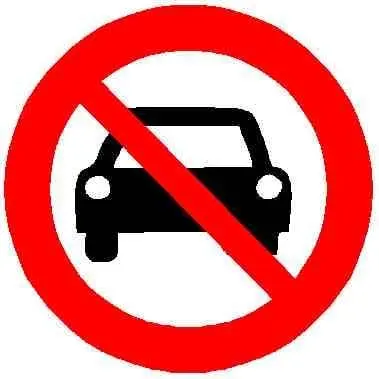My original question was “How do we disincentivize the purchase of pickup trucks/SUVs” but then I thought it would be better to approach the larger problem of car dependency and car ownership. One option is, of course, to create public transit infrastructure and improve it where it already exist. This, however, doesn’t change the fact that some will still choose to drive. What would be the best ways to discourage people from owning personal cars?


Exactly. Yet the entirety of humanity has congregated around the car as if that is that one-size-fits-all solution you’re admitting doesn’t exist.
You know, back before the car, humanity congregated around ports and railroad stations too, right? It’s kinda human nature.
Right, and we built tracks out to every building anyone might conceivably want to visit.
Wait, no we didn’t. The popularity of the car in some countries is VERY artificial. Driven by early auto-industry advertising that solidified into culture.
But it didn’t take hold world-wide.
There’s a train station in Tokyo through which the entire population of my country passes DAILY.
A design for a highway interchange that can get 5 million people where they need to go within less than 24 hours, does not exist.
Gotta apologize on my previous comment. I think I misread what you said. My reply doesn’t really make sense anymore now that I re-read the context.
I respect the hell out of that!
The car, when used for all transport, is wildly inefficient. Multimodal transport where whatever mode is most efficient is used, isn’t applied enough.
You like driving. If the goal is to enjoy the pleasure of driving, then no other option serves that purpose. Hence, driving is what YOU should be doing.
But cars are used to achieve so many other goals that do have more efficient options, simply because it is the existing standard.
There are people who VEHEMENTLY HATE commuting by car. They shouldn’t be driving, but doing so might still be the least offensive option. Providing these people a way not to drive, also fits the description of “discouraging” car ownership.
Cultural knee-jerk reactions like yours, as well as the barrier of existing infrastructure, make improvement difficult. OP is specifically asking how to change things in a way that would make people want the change, rather than have it be forced on them.
They didn’t ask how to stop people from owning cars. Discourage means discourage. If you’ll never sell your car no matter what, that means you’re one of the people who can’t be discouraged, but that doesn’t mean people who can, and even should be, don’t exist.
You admit to using transit systems, when applicable, which means you’re already accepting the solution. Would it really be so bad if you could use transit to get more places, and more people could use it for all their needs, even if you aren’t one of them?
as somebody who does some of this work: roads are expensive and environmentally damaging. The fact road costs are so effectively hidden from drivers is one of the great frustrations about communication on the subject.
Without oodles and oodles of public grants and funds there would be almost no roads. The reality here is that consumers don’t make the decision to have roads and cars, the government does. End of discussion.